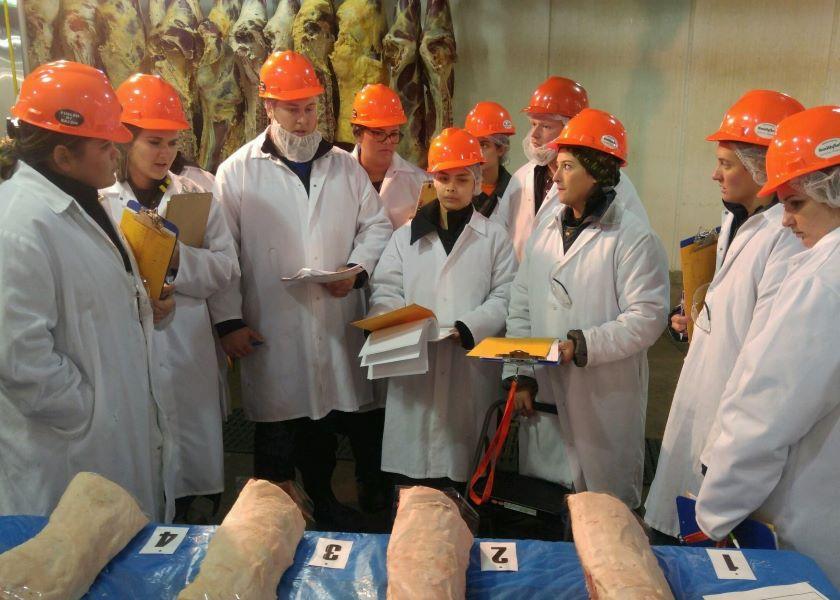Collegiate Judging Teams: 3 Benefits You Can’t Beat

One of the things I missed most about a normal, in-person semester at the University of Florida was in-person intercollegiate meat judging contests. I have been fortunate to be associated with intercollegiate meat judging as either a participant, coach, university faculty coordinator or contest official for over 22 years now.
The Intercollegiate Meat Judging Program started in 1926 and contests have been held every year except during World War II. Contest participation was greatly reduced in the fall of 2020 with most universities not being allowed to travel.
I’m appreciative that technology allowed education to continue during the pandemic, but I can’t wait to see students gathering in person again to participate on judging teams. Here are three benefits of participating on a judging team that you just can’t replicate in a virtual environment.
1. Deeper understanding of animal agriculture
Students who participate on meat judging teams are trained to distinguish differences in the relative value of pork, beef and lamb carcasses and cuts and defend their decisions with written reasons. These contests serve as a method to gauge students’ mastery of these concepts via actual application. Therefore, students who participate on the meat judging team often have greater insight to animal agriculture than students who do not.
2. Ability to make logical decisions quickly
Students participating on judging teams develop life skills that they utilize regardless of their future career. Judging team members must make rapid, logical decisions and defend their decisions via written reasons. Because of this, students improve their ability to think critically and communicate accurately.
3. Opportunity to develop much needed skills for the work force
The time commitment necessary to succeed in intercollegiate judging forces students to become organized and self-disciplined with their classroom responsibilities, improving their time management skills. Students learn to accept criticism as well as develop self-confidence and leadership skills, comparable to those developed during professional employment. The unique skill set participants on intercollegiate judging teams possess make them very attractive to an array of agricultural employers.
Participation Pays
Survey results from more than 1,650 Oklahoma State University alumni reported that 48% of meat judging alumni became full-time employees in the food industry compared with 7% of students from the general animal sciences alumni. Of the students who went to work in the food industry, over 82% of meat judging alumni remained employed in the food industry versus only 9% of alumni who did not participate.
Entities which support meat judging have access to exceptional potential employees. I wholeheartedly believe the intercollegiate meat judging program is the best tool for the recruitment and development of future meat industry talent. As a former member of the American Meat Science Board of Directors and former president of the Intercollegiate Meat Coaches Association, I am especially thankful to the National Pork Board on behalf of America’s pork producers for their continued sustaining sponsorship of the AMSA meat judging program.
There’s no question these future leaders will ultimately create more value for America’s pork producers.
More from Farm Journal's PORK:
Youth Speak Up About Pork Industry Opportunities
Swine Judging Contests Provide More Than Meets the Eye







